Public perceptions of homelessness 2022
Outline of the Study
This third annual survey by Ipsos for the Centre for Homelessness Impact explores public knowledge and attitudes toward homelessness in the UK during the cost of living crisis.
The study examines how public understanding aligns with evidence and identifies opportunities for improving policy support.
The research involved 2,152 UK adults aged 16-75 with boosted sampling in Wales, Scotland and Northern Ireland to enable regional comparisons.
Findings in brief
- A large majority of respondents (84%) consider homelessness is a very or fairly serious problem - slightly down on 2021 and 2020 figures. Fewer people now consider homelessness a ‘very serious’ problem (36%, down from 39% in 2021 and 47% in 2020)
- The public continues to over-estimate homelessness prevalence (21% of the population, versus the actual 0.5%), substance misuse (public estimate 53%, actual 5 - 7%) and proportion of people experiencing homelessness who are non-UK nationals (public estimate 34%, actual 14%)
- The proportion of people expecting UK homelessness to rise in the next 12 months increased significantly, to 74% of the total (62% in 2021) and only 5% of people expected a decrease in homelessness over the next two years.
- 49% of people surveyed understand homelessness is caused by factors beyond individuals’ control, rather than bad choices. The most commonly perceived causes of homelessness were alcohol/drug problems (70%), mental/physical health problems (63%), and poverty (61%)
- 73% of people support a homelessness prevention, rather than crisis-focused approach to addressing homelessness
- Support for evidence-based decision-making to address homelessness declined slightly (57%, down from 61% in 2021). UK-based evidence remains the most trusted source (51%), followed by views of people with lived experience of homelessness (47%). Public opinion is ranked much lower (11%).
- Policy support remains strong for housing-focused interventions. 74% of people support making it easier for councils to deliver affordable housing, 70% support moving people to permanent accommodation, and 69% support councils providing affordable housing to anyone without a home.
- Benefit increases remain less popular, with only 54% supporting inflation-linked increases.
Recommendations in brief
- Address public misconceptions about homelessness through targeted public education campaigns providing accurate statistics about homelessness prevalence and demographics
- Strengthen messaging around evidence-based decision-making
- Leverage public support for housing-focused policies by advocating for increased affordable housing, permanent accommodation solutions, Housing First approaches and structural interventions addressing poverty and mental health
- Develop communications which reflect that most people expect homelessness to increase and position evidence-based interventions as essential solutions during economic uncertainty
- Maintain focus on homelessness prevention approaches.



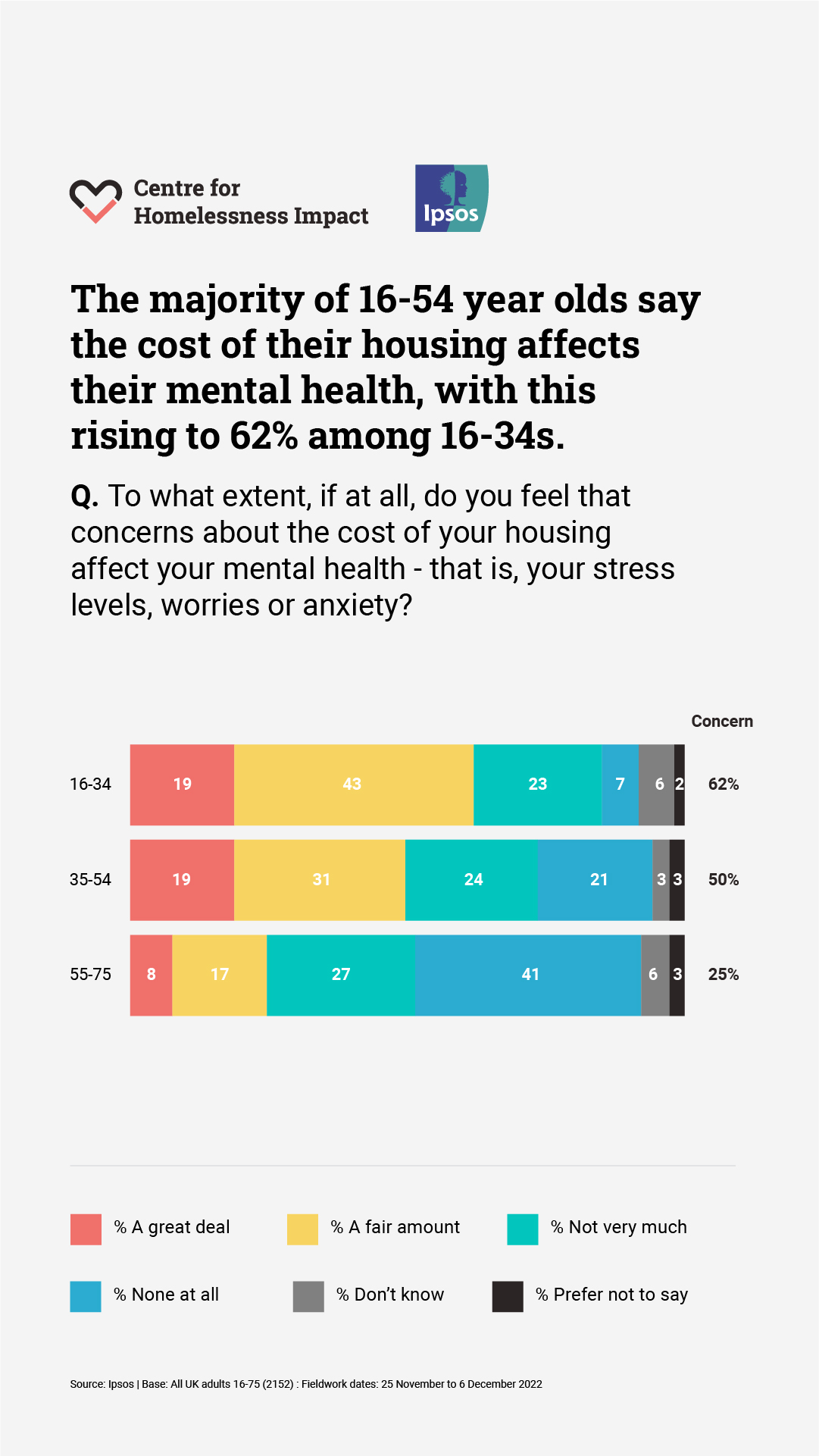

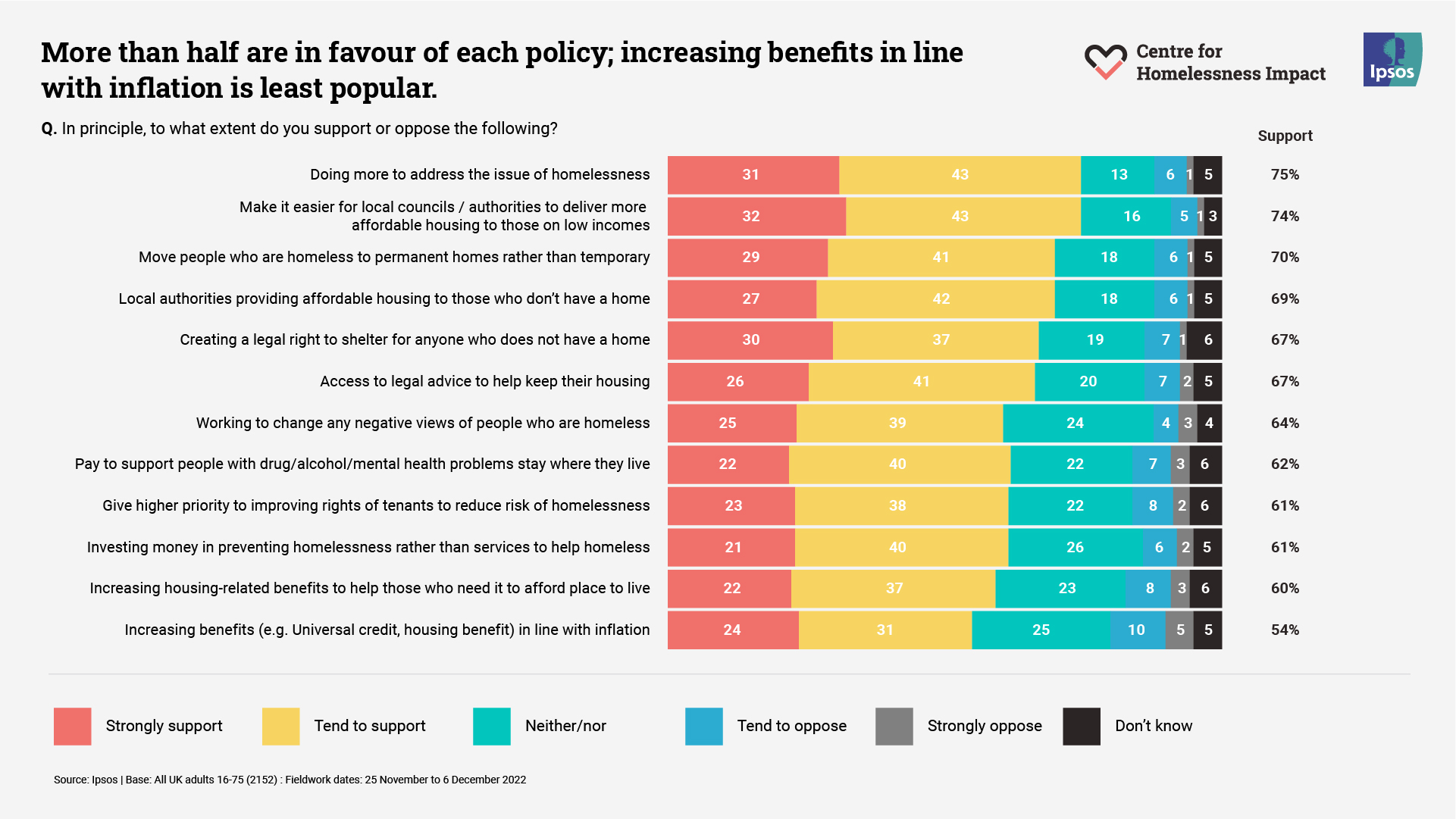
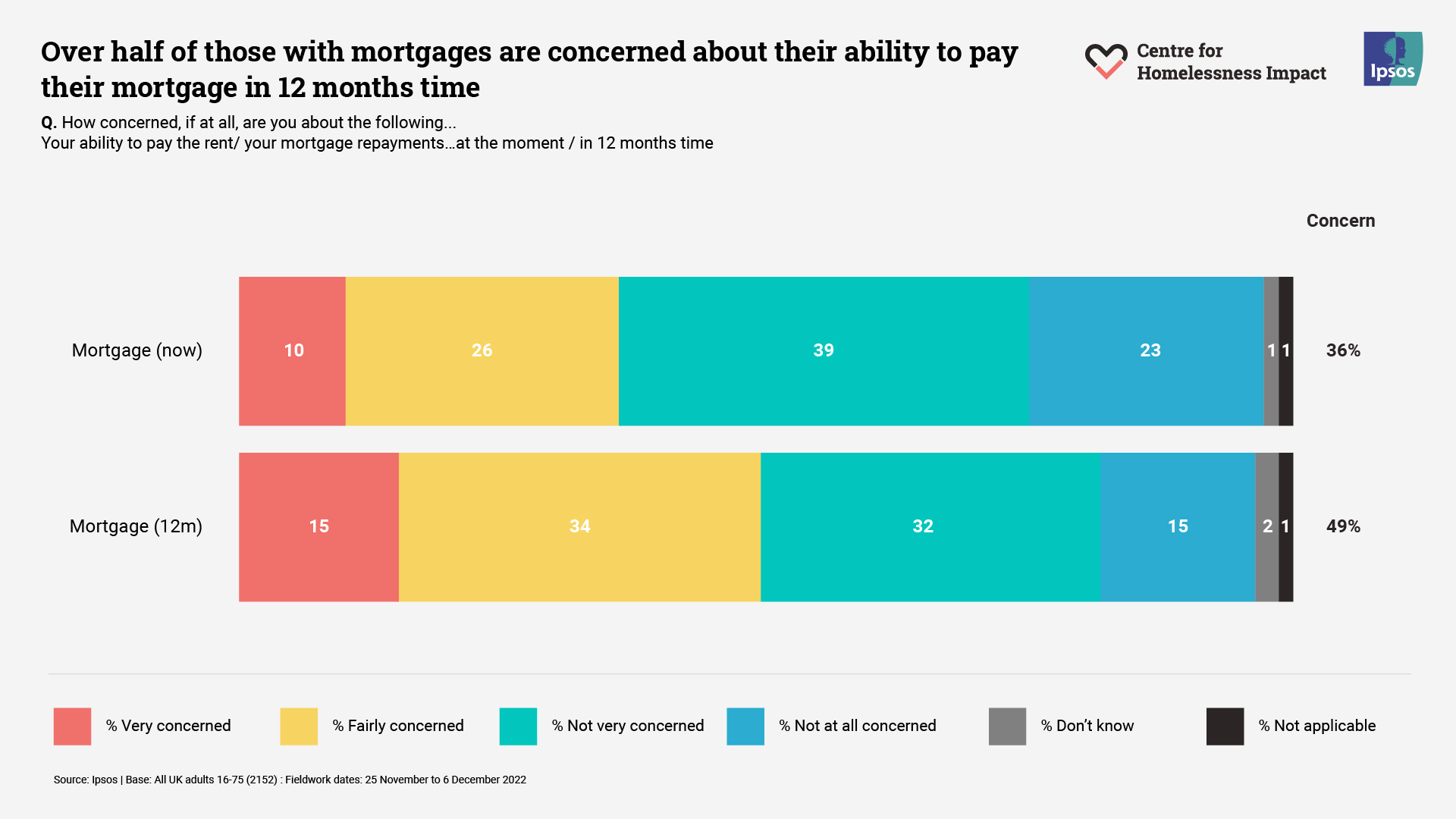
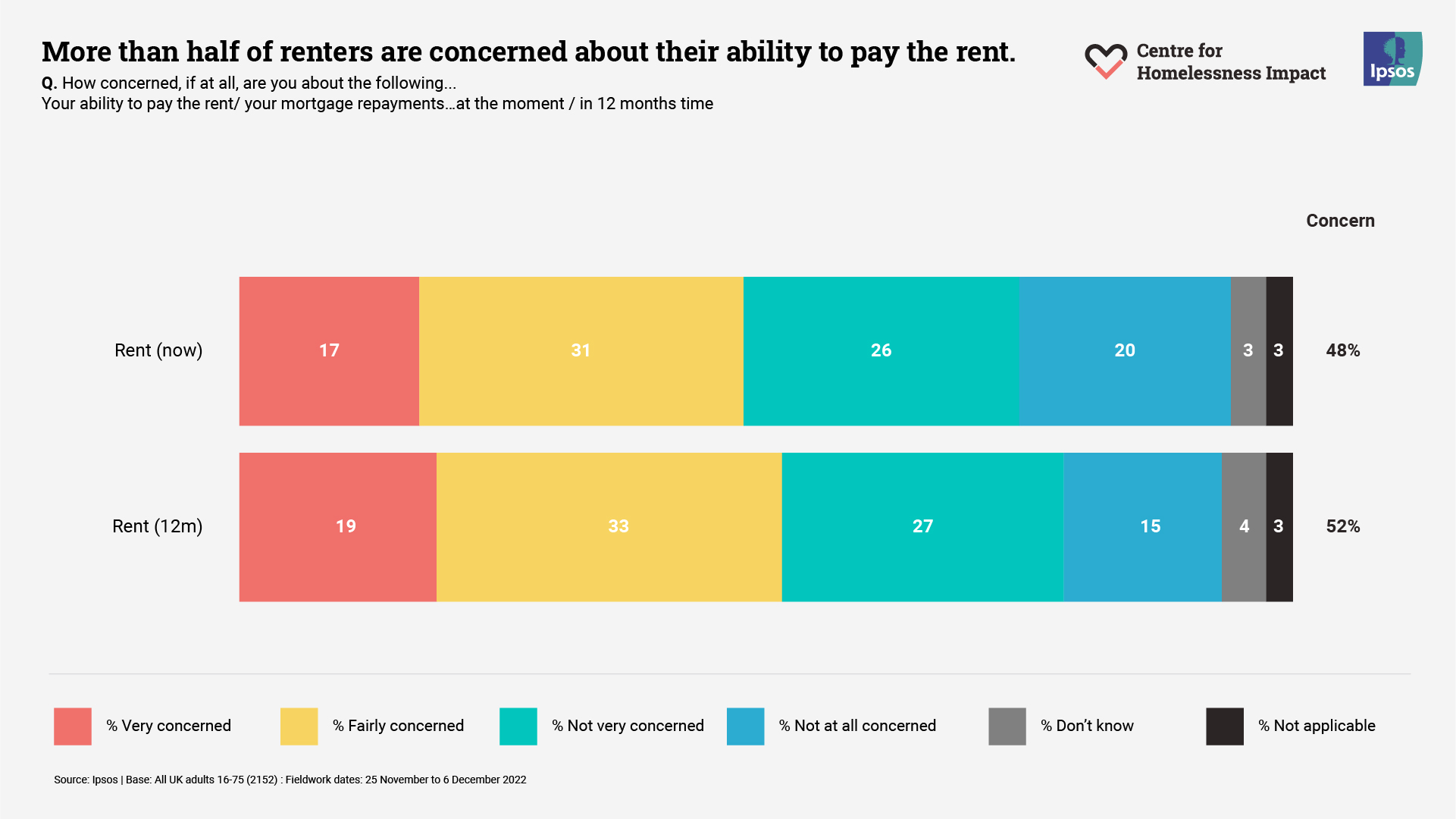
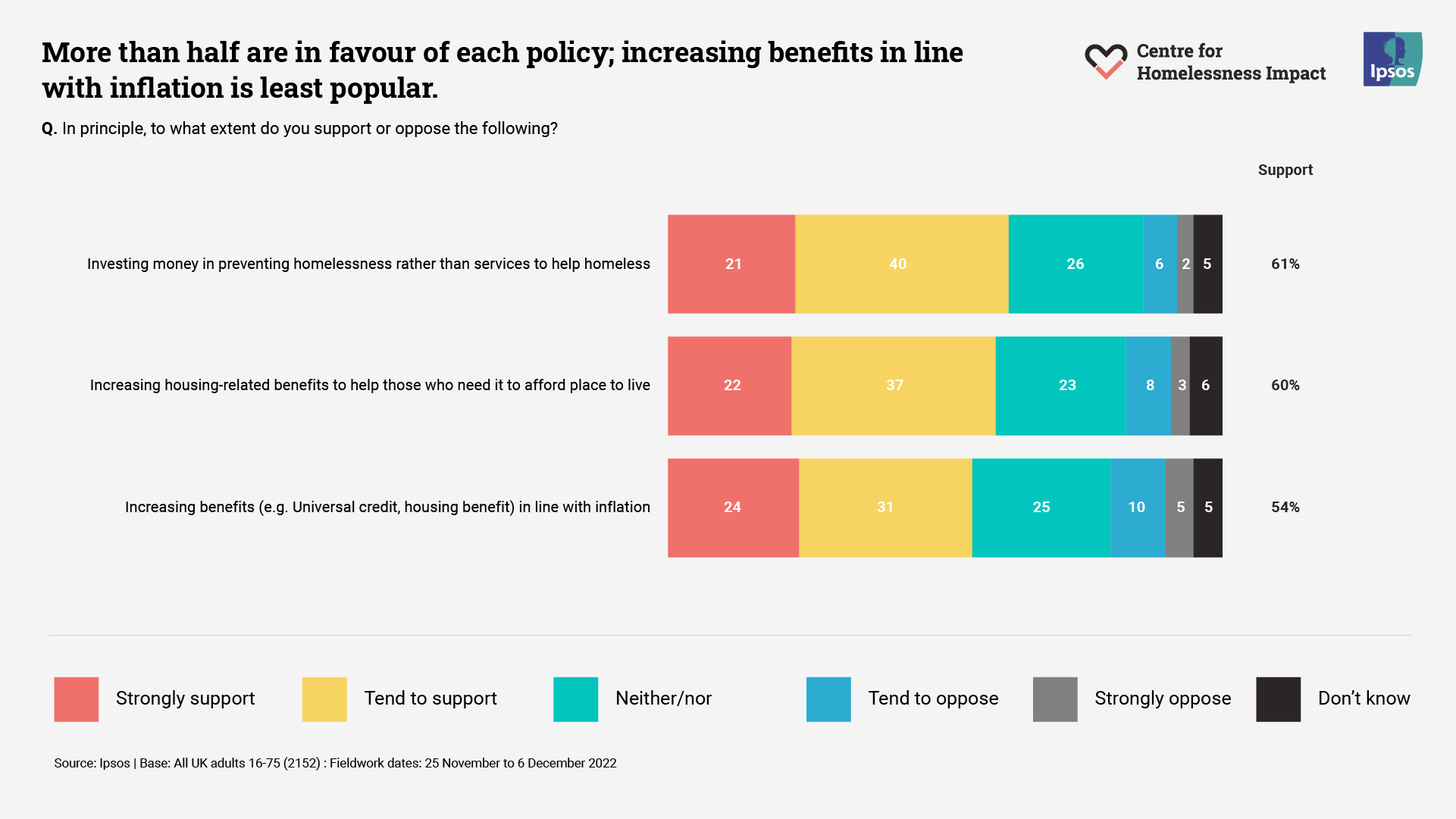
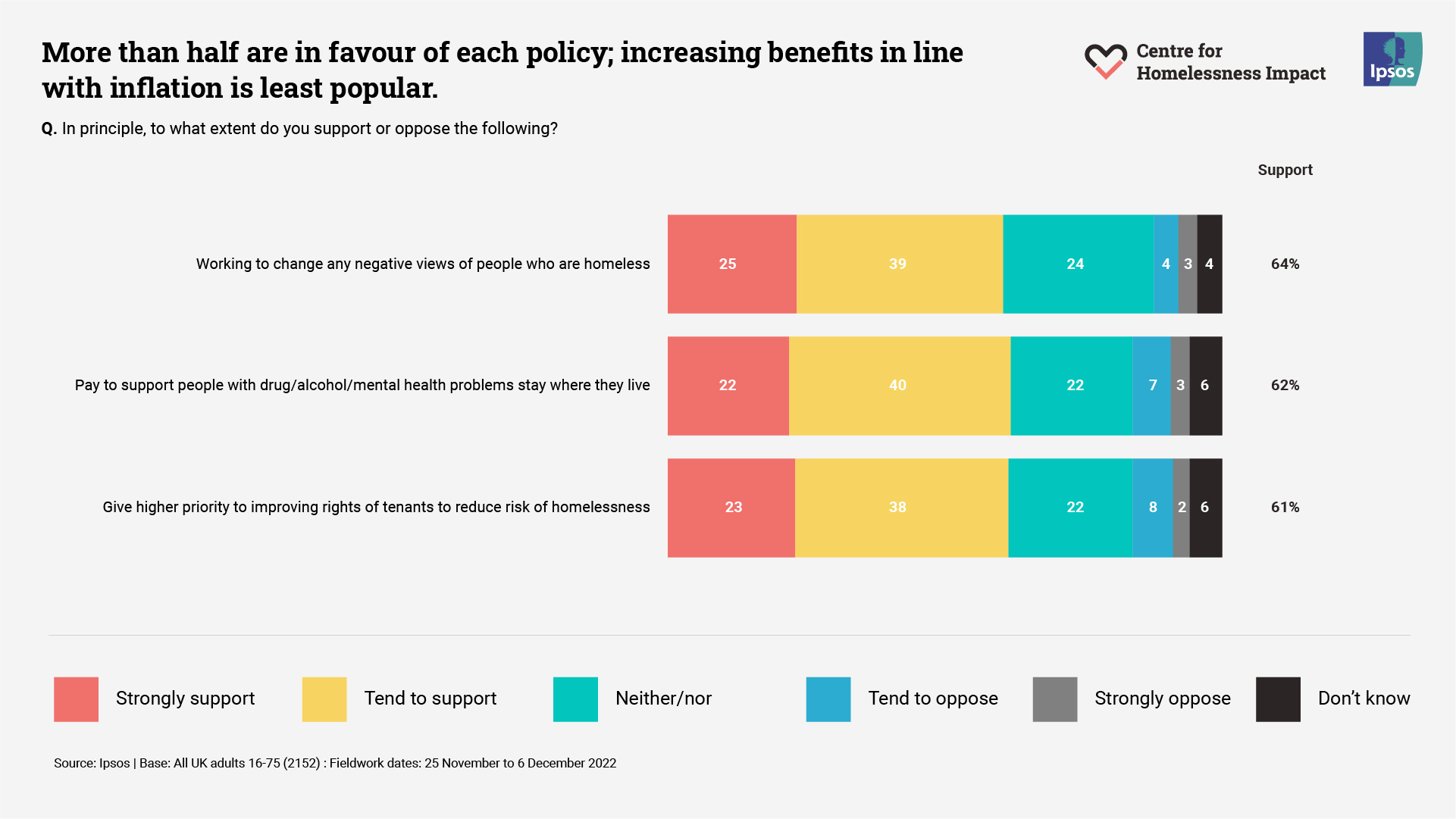

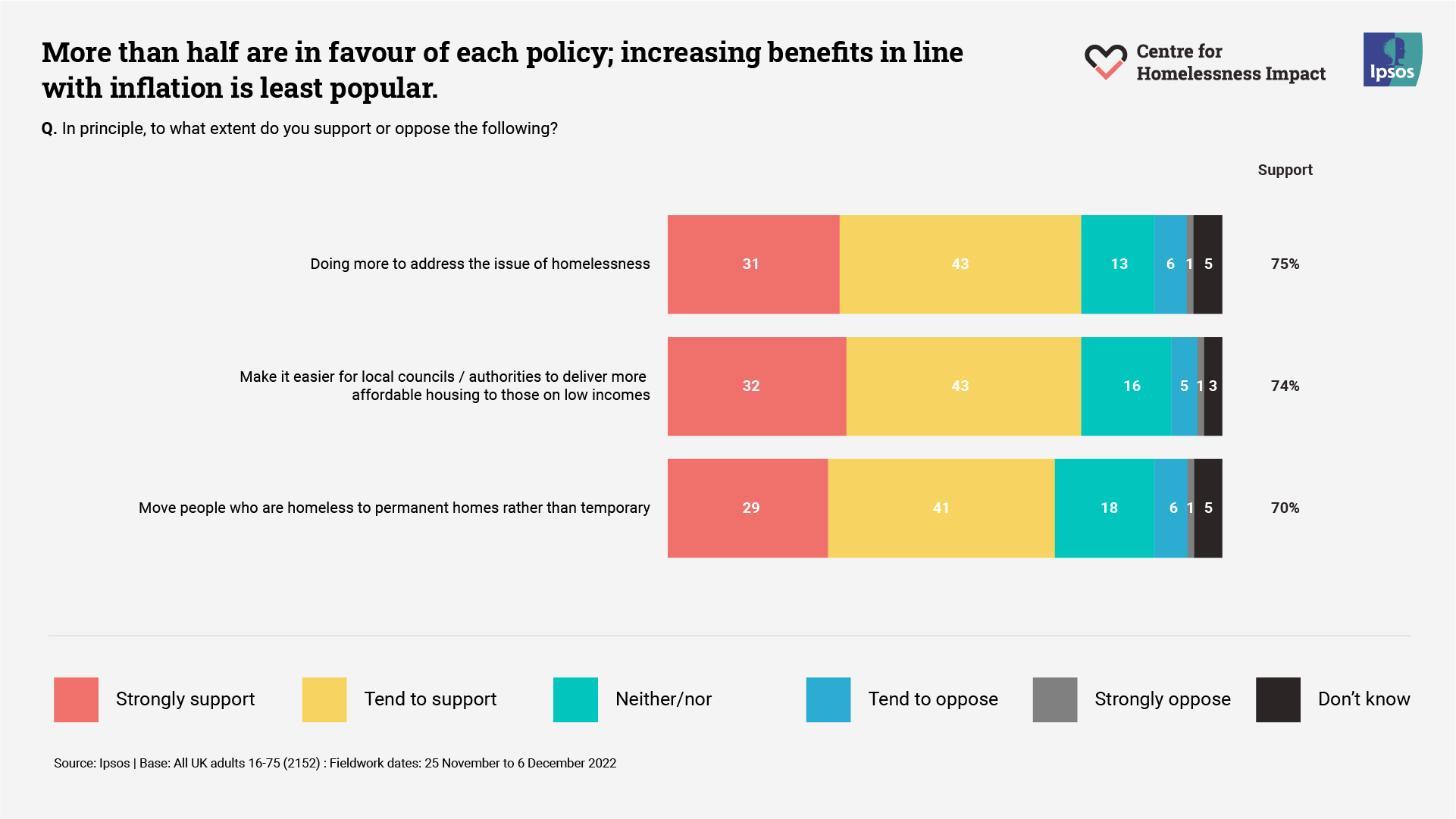


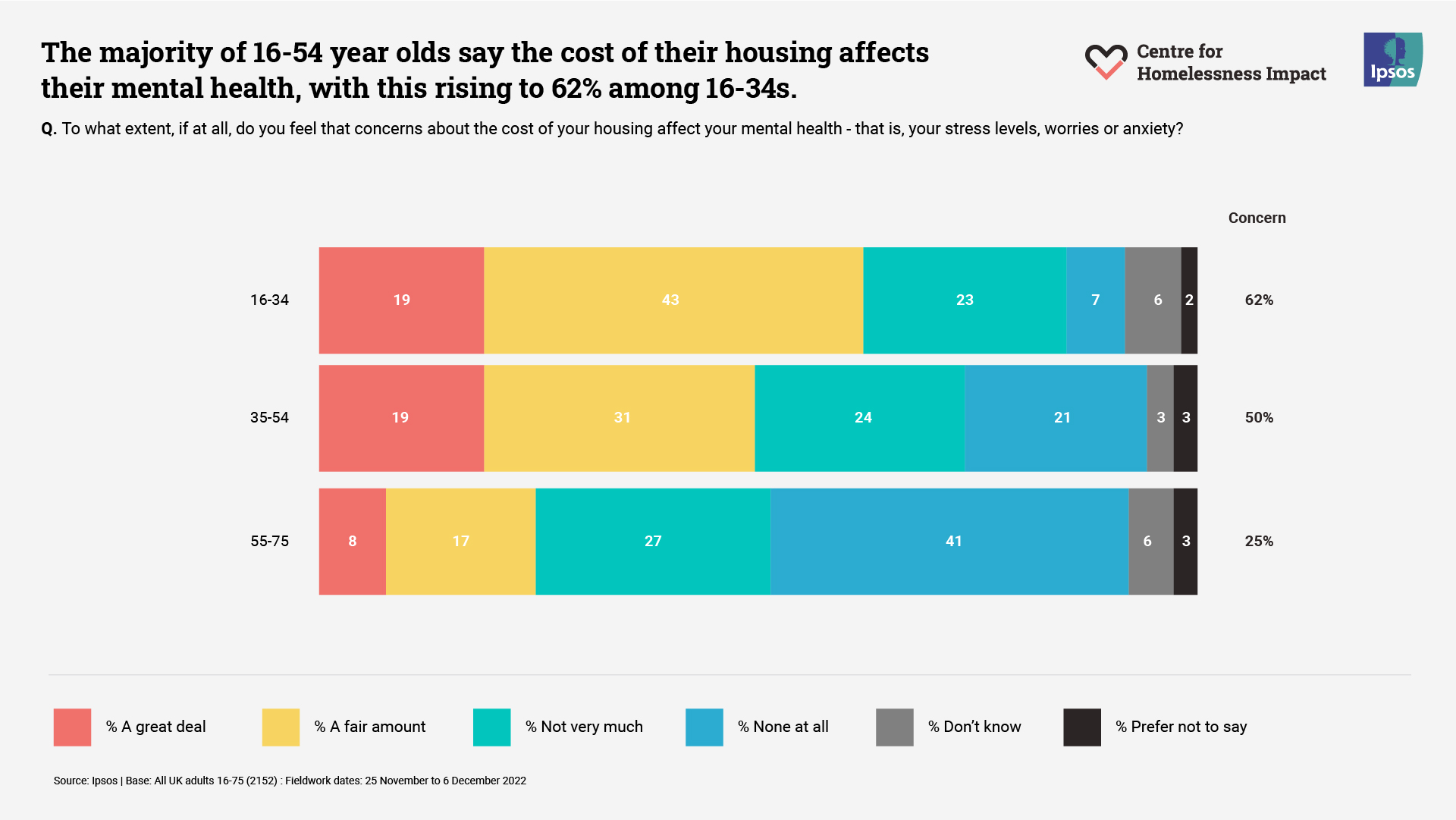
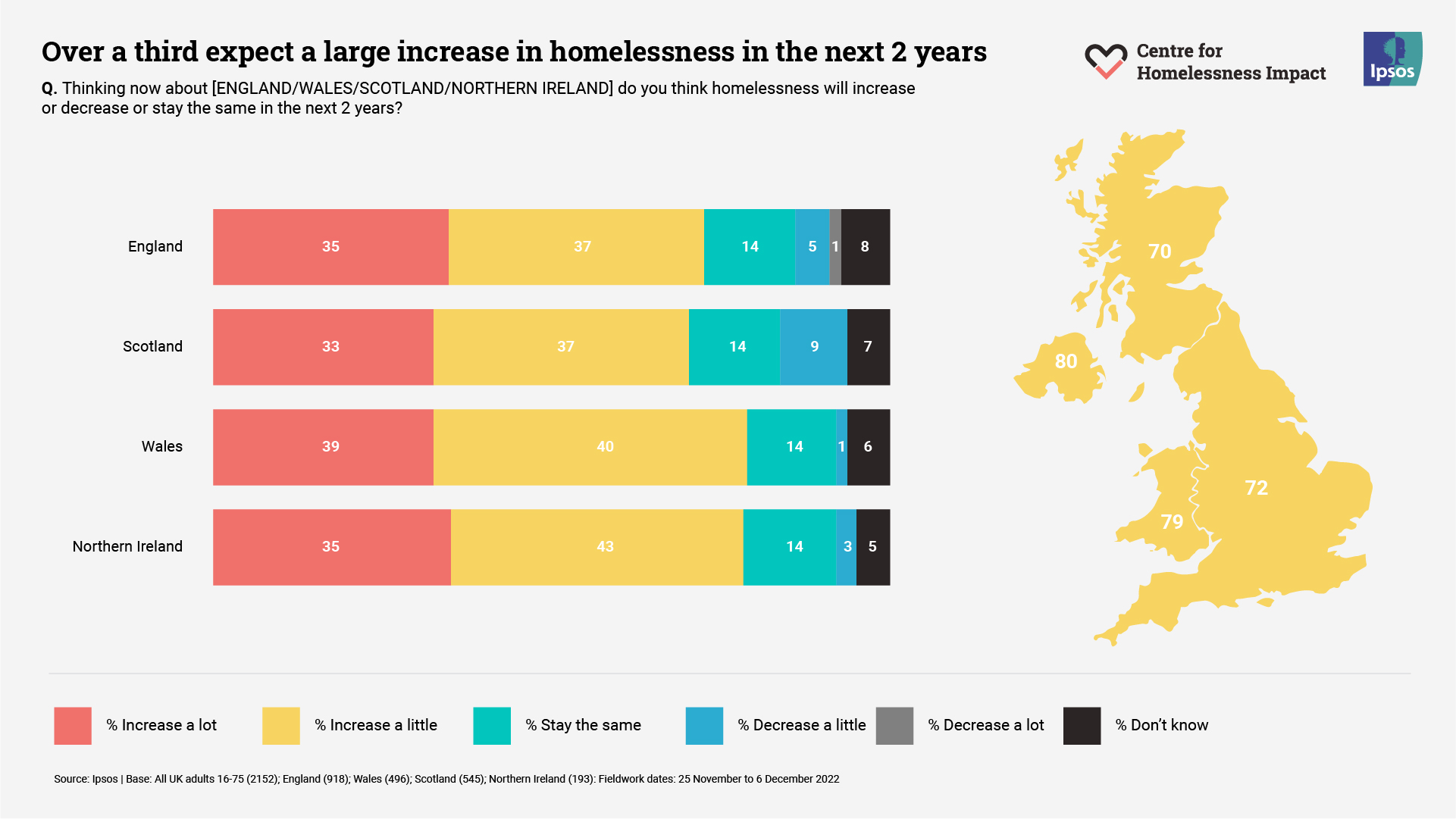
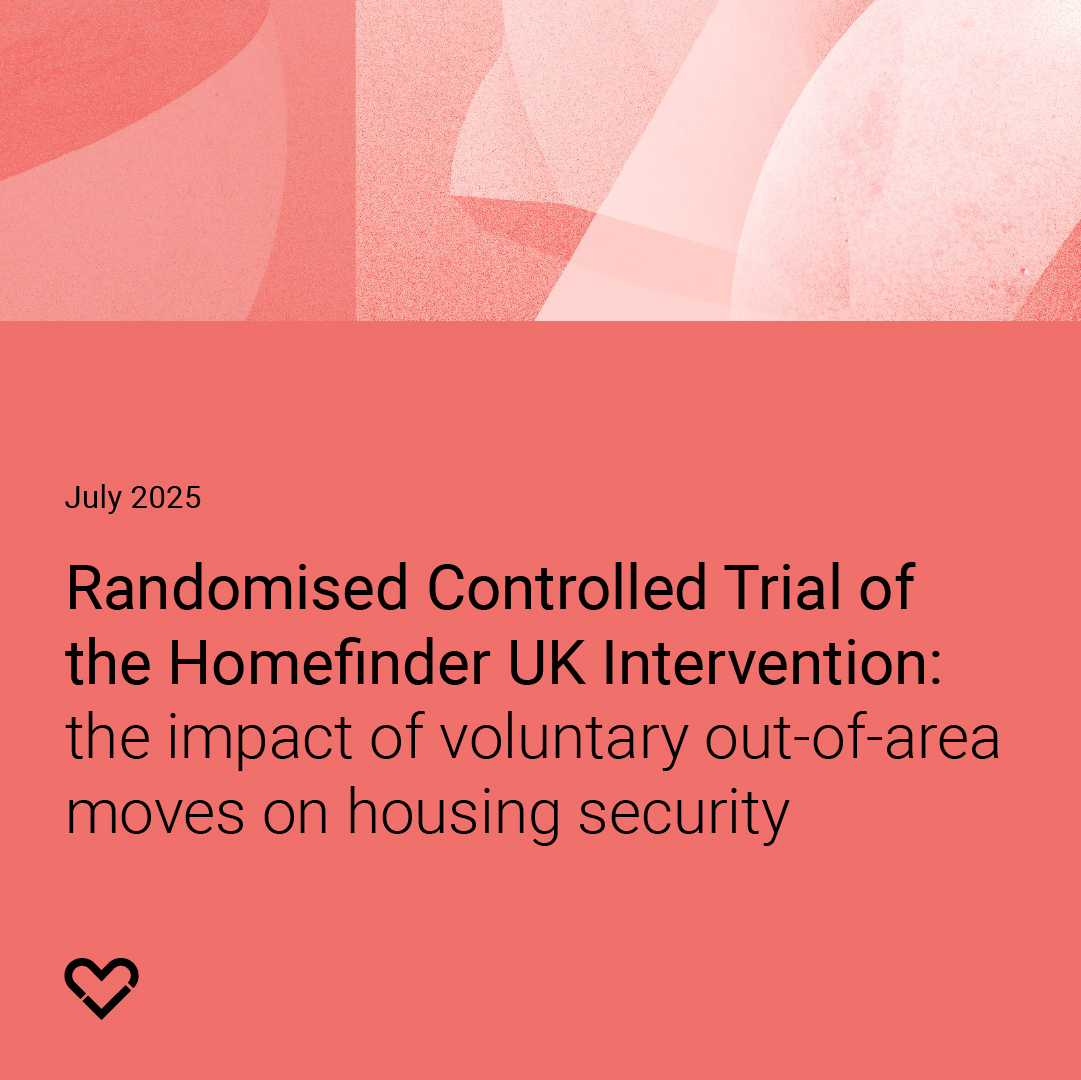
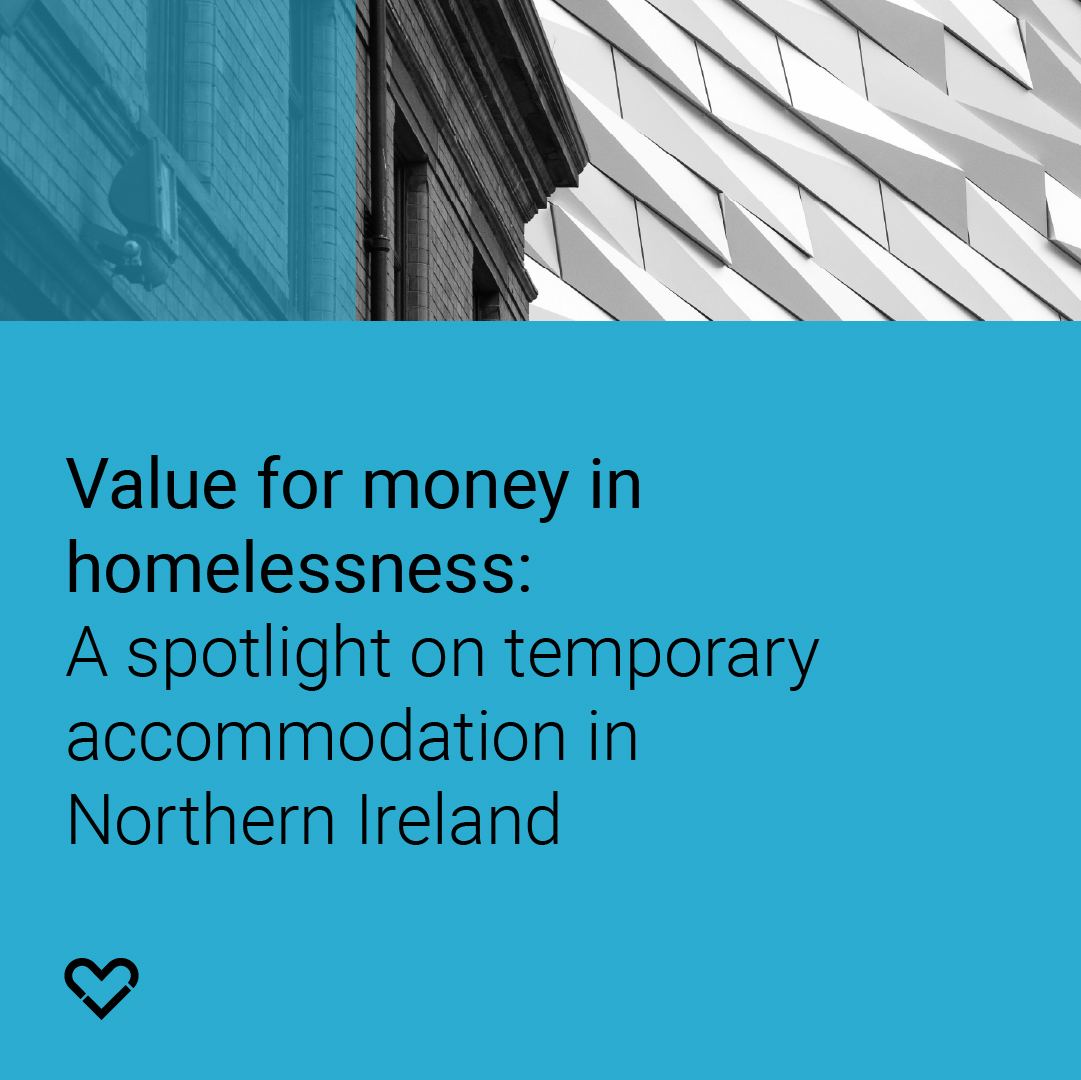
.jpg)

